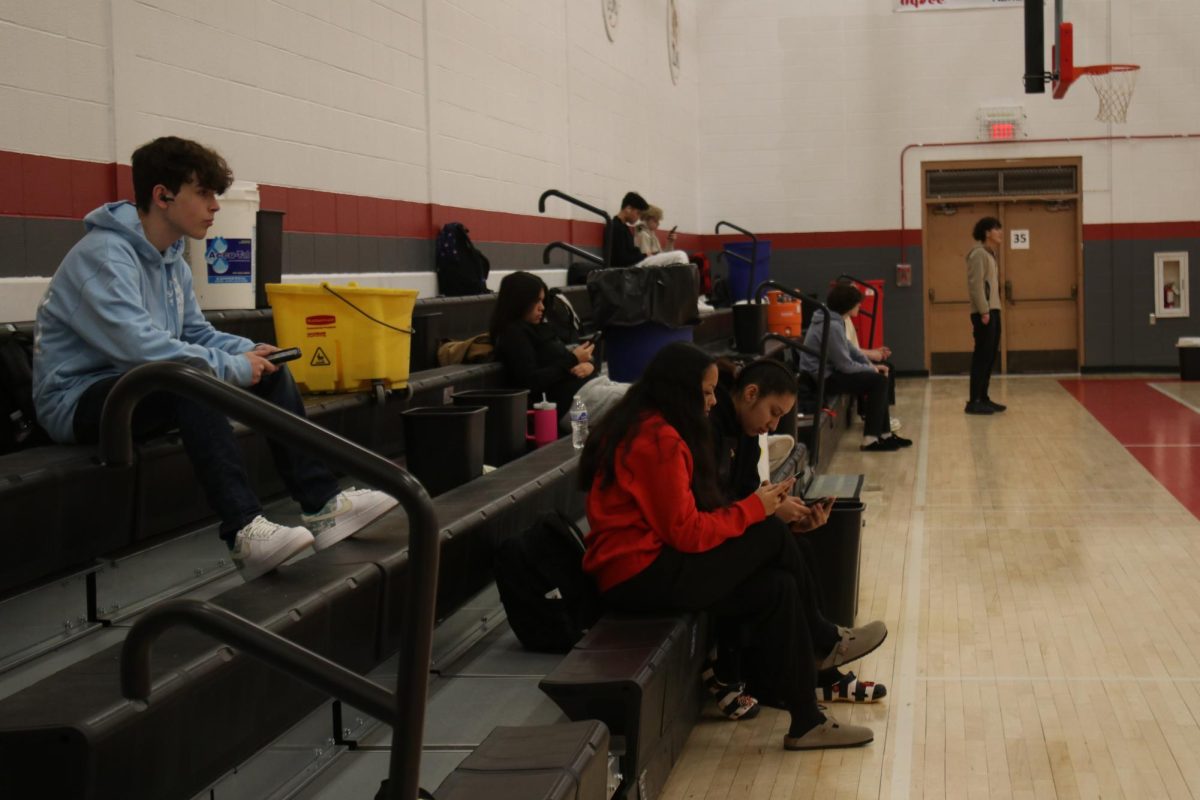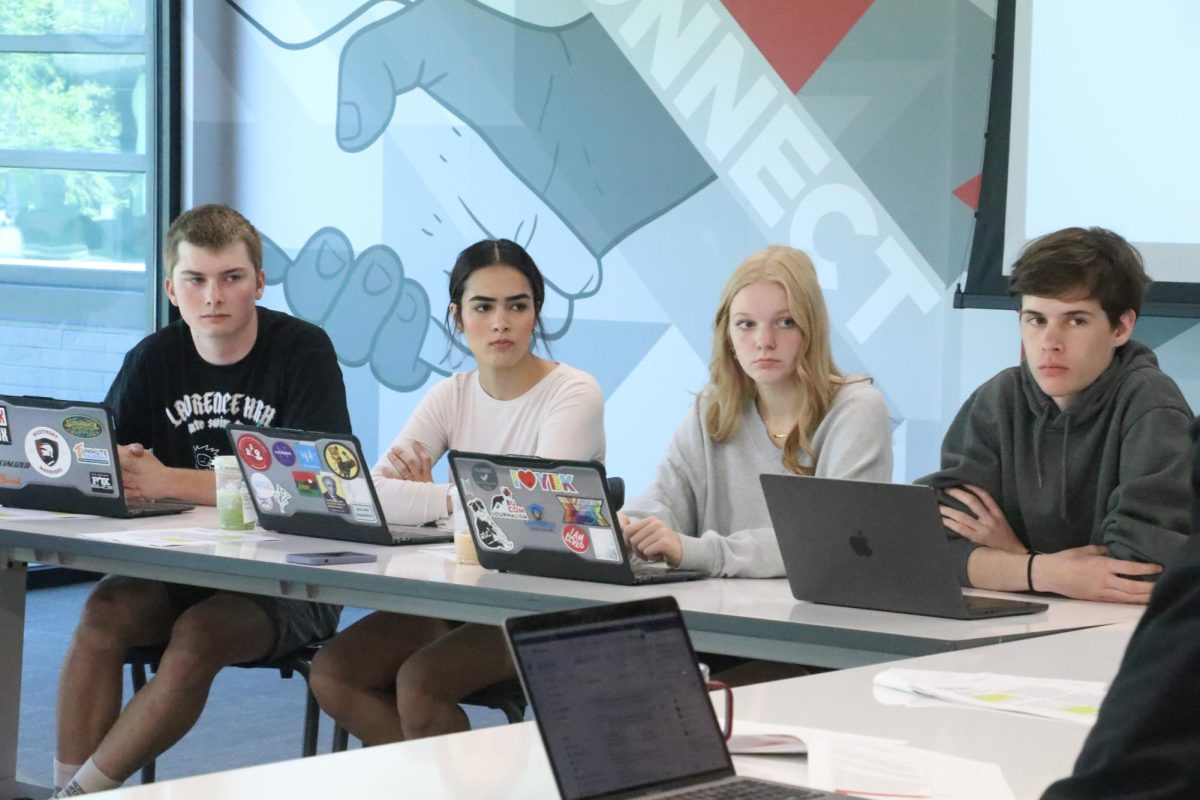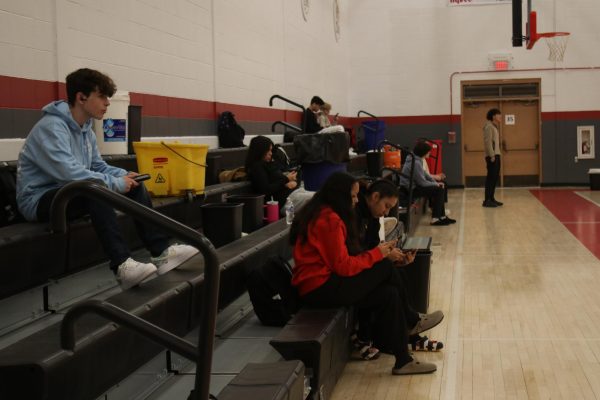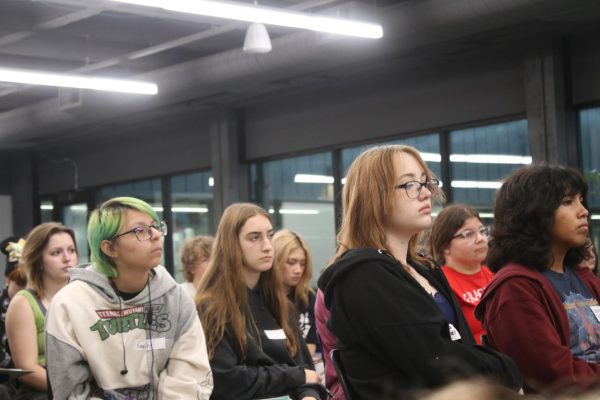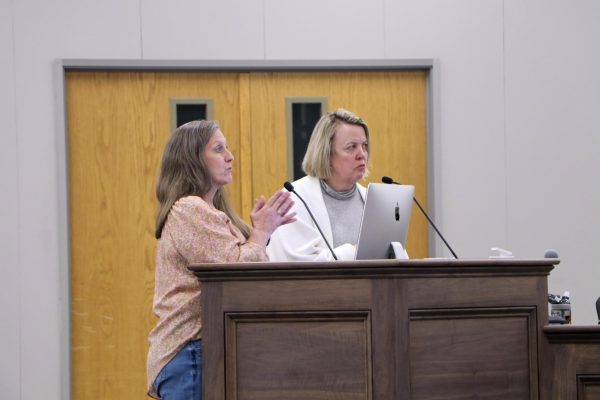State, district grapple with education funding
Kansas Supreme Court decision pressures lawmakers to increase funding levels
March 28, 2017
The Kansas Supreme Court ruled earlier this month that government spending on public education is inadequate. The justices set a June 30 deadline for the Kansas Legislature to improve funding levels.
The court said Hispanic, black and poor students are especially harmed by current levels of education funding.
Schools are the largest consumers of state funding. Last month, the legislature approved a bill that would have initiated a repeal of 2013 tax cuts to raise about $1 billion and narrow a current budget deficit. Gov. Sam Brownback vetoed that measure, and it is difficult to determine where the money will come from to address the financing issue.
“The Court’s decision references that the state underfunded schools by more than $500 million,” said Rep. Tom Sloan, a Lawrence Republican. “We have until June 30, 2017, to develop a new school finance formula, but that still does not address how we raise the money necessary to fund the formula.”
Two years ago, Brownback and his legislative allies abolished the funding formula that was based on per pupil cost estimates and recognized unusual expenses, Sloan said. They substituted a block grant funding that Sloan said did not reflect the costs of educating students.
This ruling will impact USD497 and funding for Lawrence schools. The school board released a statement agreeing with the court’s decision:
“The Lawrence Board of Education believes educational opportunity should be a function of the taxable wealth of the state as a whole,” the statement said. “A student’s ZIP code should not determine his/her access to educational opportunities. A system of local control by school boards helps to ensure that the needs of all students and their unique communities are met.”
Superintendent Kyle Hayden said he was pleased with the decision.
“We appreciate the Court’s ruling,” Hayden said in a statement. “We need a school finance system in Kansas that meets the constitutional requirements of equity and adequacy in order to ensure success for all students.”
Hayden said that last fall, district officials gave legislators and the governor input about what they think are necessary components to create a new finance plan with a “fair and balanced tax structure to fund it.”
“We hope that they can come up with a funding system that puts students first,” Hayden said.
School board member Vanessa Sanburn was also happy with the court ruling.
“I was particularly pleased to see that the decision was unanimous, given the claims that the court justices recently faced about being ‘activist’ judges,” Sanburn said.
The state started putting less money into its funding formula beginning in 2009, dropping those levels each year.
“Kansas school funding has lagged behind most other states, which makes it difficult for our students and communities to compete with other states in improving workforce skills and obtaining higher wage jobs, not to mention more challenging for our district to recruit and retain teachers,” Sanburn said. “When compared nationally on multiple measures of success, no public school system outperforms Kansas public schools except those that invest more funding per pupil.”
Sanburn said to fix the funding issue, the tax policy needs to be fair and balanced.
“I think that scaling back the tax cuts that have been phased in over the course of Brownback’s time as governor is necessary to fund education, infrastructure and other critical functions of our state government,” Sanburn said.
Lawrence in particular has tried to balance the finance problem. The local option budgets and capital outlay funds are at the maximum legal limits, Sanburn said.
District workers are hopeful the legislature can fix the funding issue.
“We’re counting on the legislature to develop and pass legislation to both adequately and equitably fund our schools,” Sanburn said. “Our district continues to work with our legislature to share concerns and ideas to these ends, and are lucky to be represented by legislators who share these values and recognize the urgency of this issue.”




